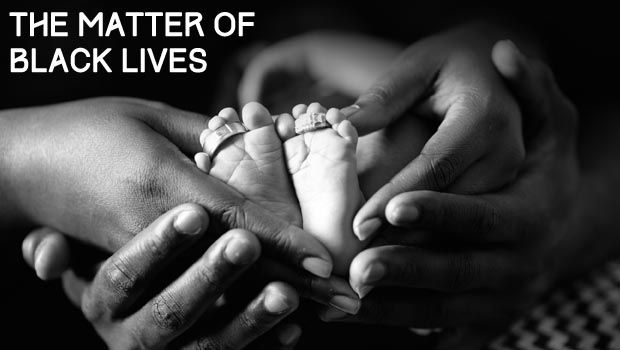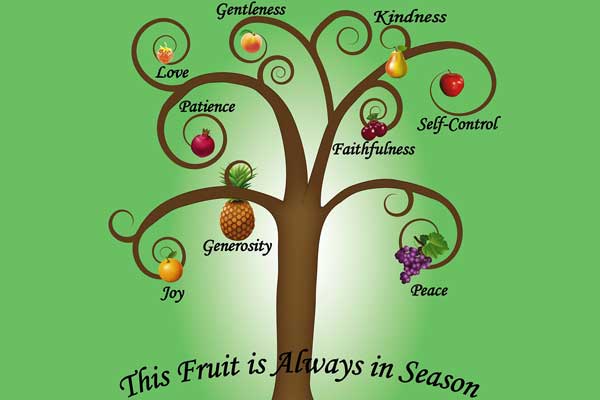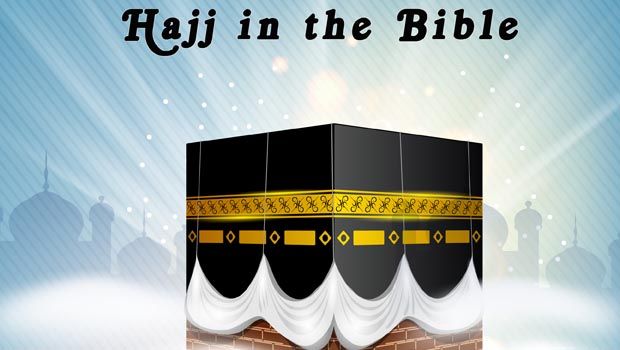Every July 4th in the United States, citizens rush to the streets and parks to delight in the great spectacle of colorful and thunderous fireworks celebrating the anniversary of the adoption of the Declaration of Independence, a document declaring the 13 original American colonies’ demands for justice and independence from the British Empire. Within the pages of this famous document are the following universal words: “We hold these truths to be self-evident, that all men are created equal, that they are endowed by their Creator with certain unalienable Rights, that among these are Life, Liberty and the pursuit of Happiness.”
It is unfair to generalize or suggest that all police officers are racist or quick to pull the trigger. The fact is that while law enforcement is crucial to maintaining law and order, African-American communities across the nation must feel confident that the police will deal with them fairly and humanely.
These words, written in 1776, which profess to be true of “all men,” have unfortunately not been granted in full to everyone, especially the African-American community. Although race relations in the United States have certainly progressed leaps and bounds since the dark days of slavery, racial tensions in 2016 seem to be at a boiling point. And the notion of racial equality for all is more of a dream than a reality. The Black Lives Matter movement is currently at the forefront of the rallying cry to highlight injustices against the black community in America.
Devaluing Life
To begin with, it goes without saying that black lives absolutely do matter — they always have and always will — as do all lives, including blue lives (police officers). Islam rejects the notion that individuals or nations are superior because of color or race, or other arbitrary distinctions. Prophet Muhammad (peace be upon him) said in his final sermon: “All mankind is from Adam and Eve; an Arab has no superiority over a non-Arab nor a non-Arab any superiority over an Arab; also a white has no superiority over a black nor a black any superiority over a white, except by piety and good action.”
Furthermore, life itself is sacred, and to kill anyone without lawful and moral cause is a travesty of justice. Allah (SWT) says in the Quran: “Whoever kills a person [unjustly]…it is as though he has killed all mankind. And whoever saves a life, it is as though he has saved all mankind” (Quran 5:32). Not only in America, but all around the world, whether on the battlefield or elsewhere, there is an unfortunate tendency to devalue the sanctity of life. This has been seen in the U.S. where some police officers have been found shooting and killing, rather than arresting, young unarmed black men. Likewise, around the world, innocent men, women, and children are viciously and senselessly slaughtered in the name of war. According to the Costs of War project at The Watson Institute for International and Public Affairs at Brown University, “Approximately 210,000 Afghan, Iraqi, and Pakistani civilians have died violent deaths as a direct result of the wars.” This is only one region, but this ongoing problem of devaluing life in general, and the lives and blood of black and brown people in particular, is at the heart of the movement called Black Lives Matter.
The Black Lives Matter Movement
The Black Lives Matter organization was established in 2013, following the controversial death of unarmed teenager Trayvon Martin who was gunned down by neighborhood watch volunteer, George Zimmerman. Trayvon was walking home after purchasing snacks at a convenience store in Sanford, Florida. When Zimmerman was ultimately acquitted of all charges, cries of foul play, protests, and demands for justice ensued.
According to Alicia Garza on BlackLivesMatter.com, “I created #BlackLivesMatter with Patrisse Cullors and Opal Tometi, two of my sisters, as a call to action for Black people after 17-year-old Trayvon Martin was posthumously placed on trial for his own murder and the killer, George Zimmerman, was not held accountable for the crime he committed. It was a response to the anti-Black racism that permeates our society and also, unfortunately, our movements. Black Lives Matter is an ideological and political intervention in a world where Black lives are systematically and intentionally targeted for demise. It is an affirmation of Black folks’ contributions to this society, our humanity, and our resilience in the face of deadly oppression.”
Two other nationally covered cases added fuel to the fire and seemed to further ignite the strength and breadth of the Black Lives Matter movement. The first of these occurred when unarmed 18-year-old Michael Brown was shot on February 12, 2014 in broad daylight by officer Darren Wilson in Ferguson, Missouri, after being stopped on suspicion of burglary. Some eyewitnesses asserted that at some point Brown held up his hands in surrender, but a Department of Justice report concluded that Brown likely didn’t have his hands up when he was shot and many of the witnesses were ultimately found to be not credible or admitted they lied. A second DOJ report, however, investigated the Ferguson police department and found broad-based racial bias, and routine violation of the constitutional rights of African-American citizens. After Wilson’s acquittal, Ferguson, Missouri was a hot spot for protests, and unfortunately there were instances of looting and the burning down of stores. Another case which drew national attention and outrage was the chokehold death of Eric Garner on July 17, 2014, for allegedly selling cigarettes without a license. He is heard pleading, “I can’t breathe” as he is restrained. The medical examiner found his death was due to chokehold, chest compression, and poor health.
The question of injustice in these cases has to do with the fact that the ultimate punishment of death was outrageous, considering the circumstances of these incidents: walking down the street after purchasing snacks — Trayvon Martin; being suspected of shop lifting — Michael Brown; and selling cigarettes without a license — Eric Garner.
The Difference the Black Lives Matter Movement Has Made
As in past civil rights/social justice movements such as Gandhi’s Indian independence movement and Martin Luther King Jr.’s civil rights movement, civil disobedience and protests have been an effective means to garner the attention of the powers that be, and effect permanent change. The more protesters demand change and justice, the more political leaders take heed.
Khury Petersen-Smith had this to say about the BLM movement in an article in the International Socialist Review entitled “Black Lives Matter–A new movement takes shape”: “In a matter of weeks, the (BLM) movement shattered what remained of the notion of a ‘post-racial’ America and reoriented the entire national conversation on anti-Black racism. The movement follows in a tradition of Black struggles in the United States whose impacts far exceed the numbers of people involved and go well beyond their point of origin …The strength of today’s Ferguson-inspired movement can be gauged in a number of ways. For one, the movement has been militant from its inception. One of the movement’s most popular refrains in street protests and social media is ‘shut it down!’ Beyond a rhetorical slogan, this has found expression in the real world as activists in dozens of cities have marched onto highways to disrupt traffic; linked arms across railroad tracks to stop trains; sat down in urban intersections; delayed sporting events; and temporarily occupied shopping malls, major retail stores, police departments, and city halls.” The growing lack of trust between the African-American communities and law enforcement has been a central focus of the BLM struggle.
Justice From and Toward Law Enforcement
Disappointment and outrage against law enforcement has been at the heart of the Black Lives Matter movement, and the fact that some police officers have been caught on video using excessive or deadly force when apprehending suspects of color has given credence to ongoing allegations of police brutality.
But it is unfair to generalize or suggest that all police officers are racist or quick to pull the trigger. The fact is that while law enforcement is crucial to maintaining law and order, African-American communities across the nation must feel confident that the police will deal with them fairly and humanely. Certainly officers must be able to protect themselves while policing the community. But they must also be trained and predisposed to de-escalating rather than ratchetting up tense situations. They need to be trained to avoid stereotyping, profiling, or pre-judging individuals or circumstances based on any sort of racial, religious, or socio-economic class bias. The tragic consequence of distrust and anger toward law enforcement – when it is not adequately addressed and therefore allowed to grow and fester — is the horrific targeting of police such as the murder of five officers in Dallas, Texas in July of this year.
Islam demands that justice be served to all parties and on all sides of an issue: “O you who believe! Stand out firmly for justice, as witnesses to Allah, even as against yourselves, or your parents, or your kin, and whether it be [for or against] rich or poor: for Allah can best protect both. ….and if you distort or decline to do justice, verily Allah is well- acquainted with all that you do” (Quran 4: 135).
Educational Inequity
The issues of discrimination, of social and economic inequities, that the black community in America faces is brought to the fore by the graphic violence and injustice of police brutality. Far too many African-Americans are in prison, and there is unequal and inferior education in the inner cities. Education is seen by many as the great equalizer—as an opportunity to reach one’s greatest potential, to climb the socio-economic ladder so as to achieve economic independence and success. When quality public education is lacking, serious questions of injustice can and should be raised. Seeking and acquiring education is critical in Islam, and was the theme of the first words revealed in the Quran: “Read in the name of your Lord who created. Created man, out of a clot of congealed blood. Read, and your Lord is the most Generous, Who taught by the pen, taught man that which he knew not” (Quran 96:1-5).
Nearly 60 years after the 1954 landmark ruling in Brown v. the Board of Education, in which the U.S. Supreme Court declared public education is “a right which must be made available on equal terms,” racial inequities in school spending persist. An article entitled “Students of Color Still Receiving Unequal Education,” on Americanprogress.org, gives clear evidence that the historical problem of inequity in American education has not gone away. The article presents the following data to back up that claim:
- Across the country schools spent $334 more on every white student than on every nonwhite student
- Mostly white schools (90 percent or more white) spent $733 more per student than mostly nonwhite schools (90 percent or more nonwhite)
- The United States spends $293 less per year on students in mostly nonwhite schools than on students in all other schools. That’s 7 percent of the median per-pupil spending.
Although slavery is thankfully a thing of the past, “justice for all” is still, unfortunately, an American dream unrealized. We need groups like the Black Lives Matter movement to keep such injustices in the forefront of our minds.
Beyond Protests: A New Vision Towards Policy Change and Justice
According to an article on NBCnews.com, entitled “Black Lives Matter Releases Policy Agenda,” the movement has taken serious and unified steps to communicate and document clear goals and demands for policy changes to support racial equality and social justice. The plan, “A Vision for Black Lives: Policy Demands for Black Power, Freedom and Justice,” is the work of more than 50 organizations nationwide, and advances six core demands and 40 policy priorities. According to Montague Simmons of Organization for Black Struggle and the Movement for Black Lives Policy Table: “Our grievances and solutions extend beyond the police killing of our people; state violence includes failing schools that criminalize our children, dwindling earning opportunities…., and so much more…That’s why we united, with a renewed energy and purpose, to put forth a shared vision of the world we want to live in.” The six core demands are as follows:
- End the war on black people
- Reparations for past and continuing harms
- Divestment from the institutions that criminalize, cage and harm black people; and investment in the education, health and safety of black people
- Economic justice for all and a reconstruction of the economy to ensure our communities have collective ownership, not merely access
- Community control of the laws, institutions and policies that most impact us
- Independent black political power and black self-determination in all areas of society
Global Solidarity Between the BLM Movement and the Palestinian Struggle
There is a shared longing for change within the Palestinian and African-American struggles for justice. In an article entitled “Black Lives Matter Activists Declare Solidarity with Palestine” at in these times.com, it is noted that as far back as 1970, black activists published a full-page ad in the New York Times titled, “An Appeal by Black Americans Against United States Support of the Zionist Government of Israel.” This ad was signed by fifty-six writers, educators, and activists, and the first paragraph reads: “We, the black American signatories of this advertisement, are in complete solidarity with our Palestinian brothers and sisters, who, like us, are struggling for self-determination and an end to racist oppression.”
The BLM platform of 2016 states: “The US military accounts for over 50 percent of discretionary federal spending, a total of 598.5 Billion dollars spent annually, as compared to 70 billion spent on education, 66 billion spent on healthcare, 63.2 billion spent on housing and 29.1 billion spent on social security and unemployment. In addition, approximately 3 billion dollars in US aid is allocated to Israel, a state that practices systematic discrimination and has maintained a military occupation of Palestine for decades… In the years since September 11 and the US-driven ‘global war on terror’, US military spending has increased by 50 percent. This war has led to the killing of 4 million civilians in the Middle East. US arms and military corporations have made billions of dollars in profit off of waging disaster and destabilization in the Middle East, while increasing western control over the land and resources of the region. In South America and the Caribbean the war on terror has combined with a long-running war on drugs intensifying forced migrations, land grabs, and political disenfranchisement. The war on terror, has not made us safer and has only increased hopelessness as our fears are realized.” The call for justice by the BLM movement, in conjunction with social justice organizations around the world, will continue until social, economic, and political justice objectives are achieved.
The Need for the BLM Movement in America
The Black Lives Matter movement and other civil rights and social justice campaigns in America and abroad are critical in bringing the existence of inequality to the fore and into the political discourse, and in demanding change. We can no longer turn a blind eye to attitudes of discrimination, racism, or rancid and retrogressive notions of the inferiority of persons of color. The United states is said to be a “land of opportunity,” and all people deserve an equal opportunity to “pursue happiness.” Justice and peace go hand in hand–where there is no justice, then there will likewise be no peace.
The words of Martin Luther King Jr. in his “I have a Dream” speech still ring true: “There are those who are asking the devotees of civil rights, ‘When will you be satisfied?’ We can never be satisfied as long as the Negro is the victim of the unspeakable horrors of police brutality. No, no, we are not satisfied, and we will not be satisfied until ‘justice rolls down like waters, and righteousness like a mighty stream.’”
Until education is equal, job opportunity is equal, and the police and courts treat all men and women equal—the Black Lives Matter Movement will remain necessary to lead the rallying cry against the systemic attitudes, policies, and behaviors that oppress African-Americans and other people of color.
As the Quran teaches, humanity is one family—and there will never be universal peace until all of our brothers and sisters are treated with justice.
“O mankind, We have created you from a male and a female and have made you into nations and tribes for you to know one another. Truly, the noblest of you with God is the most pious. Truly, God is All-Knowing, All-Aware” (Quran 49:13).





